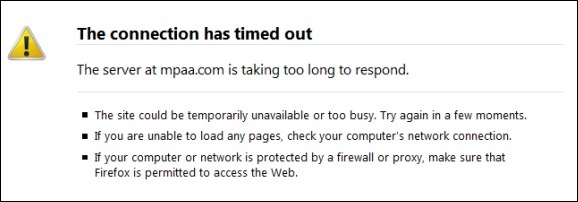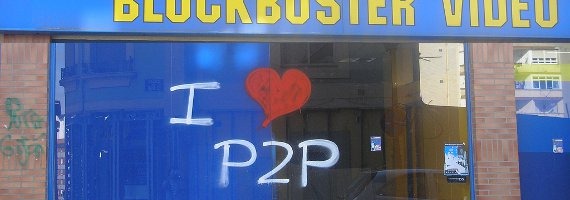
Earlier this month, a company in India claimed that it had been hired by the movie industry to launch cyber attacks on sites that hosted torrents to pirated movies. The company, Aiplex Software, promised denial of service attacks on those sites that ignored infringement notices (the company has since backed off of these claims).
It didn’t take long for Aiplex to end up with egg on its face. A loose group of internet community users, known as “Anonymous,” responded with denial of service attacks against the websites of Aiplex, the RIAA, and the MPAA. The attacks started Friday, and went into Saturday. Even today, the sites were slow to respond, although it is unclear whether that was due to attacks, or due to traffic generated from news of the attacks.
These attacks raise some bigger questions. Should legitimate trade groups engage in rogue behavior, like denial of service attacks? Do the ends justify the means?
And will the attacks by Anonymous do more harm than good? While most of us aren’t thrilled with DRM and copy protection, could attacks like these lead to even greater government involvement in the war on piracy? With the way that the entertainment industry has bought our government, at least here in the U.S., it isn’t hard to envision attacks like this making things worse.
Of course, the biggest question of all might be whether attacking a few sites that nobody visits really even matters in the long run.
What do you think? Who is in the wrong here?


 Major League Baseball was handed a viral video opportunity on a silver platter on Tuesday night. In a Philadelphia Phillies game, a fan made a tremendous catch of a foul ball from his seat near the railing in the upper deck, leaning over the railing. After high-fiving nearby fans, he handed the ball to his young daughter, who proceeded to toss the ball over the railing into the crowd below. The fan was shocked, but upon seeing his daughter’s dismay, quickly recovered to embrace her in a hug. The video was posted on YouTube, and swept the internet . . . until Major League Baseball forced the video to be taken down. Stupid, or a reasonable exercise of copyright?
Major League Baseball was handed a viral video opportunity on a silver platter on Tuesday night. In a Philadelphia Phillies game, a fan made a tremendous catch of a foul ball from his seat near the railing in the upper deck, leaning over the railing. After high-fiving nearby fans, he handed the ball to his young daughter, who proceeded to toss the ball over the railing into the crowd below. The fan was shocked, but upon seeing his daughter’s dismay, quickly recovered to embrace her in a hug. The video was posted on YouTube, and swept the internet . . . until Major League Baseball forced the video to be taken down. Stupid, or a reasonable exercise of copyright?
America Tries to Force DRM Upon the Rest of the World
The Anti-Counterfeiting Trade Agreement (ACTA) is a treaty being negotiated among several countries in secret, in order to bring copyright rules to the world. According to Michael Geist, a law professor at the University of Ottawa who focuses on tech and intellectual property law, leaks from the the most recent round of ACTA negotiations show that the U.S. is pushing for “digital lock” rules that go beyond what even U.S. courts have allowed. Digital lock rules are rules that prohibit such practices as unlocking a cell phone, and removing restrictions that might prevent you from viewing a DVD bought overseas.
Read more